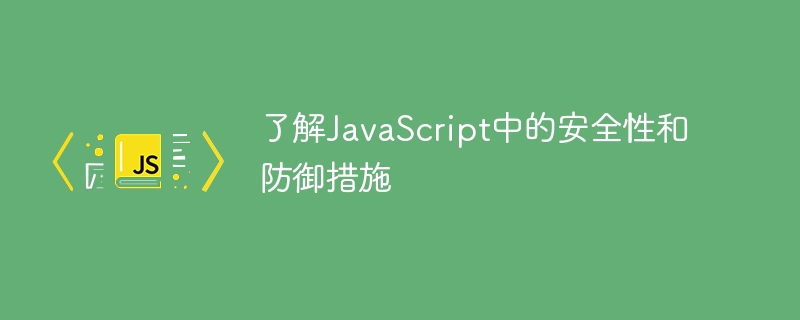

JavaScript is a scripting language widely used in web development, which can make web pages more interactive and dynamic. However, precisely because of its powerful functionality and flexibility, JavaScript also has some security risks. This article will introduce some security issues in JavaScript, as well as corresponding defensive measures, and provide some specific code examples to illustrate.
Input validation: Verify the data entered by the user and filter out special characters and HTML tags.
function sanitizeInput(input) { return input.replace(/[<>]/g, ""); }
Output encoding: Use appropriate encoding when inserting user-entered data into a web page.
function insertText() { var userInput = document.getElementById("input").value; var sanitizedInput = sanitizeInput(userInput); document.getElementById("output").innerText = sanitizedInput; }
Set the Content-Security-Policy of the HTTP header: This header information can limit the execution of JavaScript and prevent the injection of malicious scripts.
Content-Security-Policy: script-src 'self'
Verify the referer: Verify the requested referrer on the server side to determine whether it is a legitimate source.
if (referer != 'https://example.com') { discardRequest(); }
Use CSRF token: Store a randomly generated token in the session and add it as a parameter or header to the request wherever a request is made.
var token = generateToken(); var request = new XMLHttpRequest(); request.open('POST', '/api/update', true); request.setRequestHeader('X-CSRF-Token', token);
Set the SameSite attribute: Set the SameSite attribute in the cookie to Strict or Lax to restrict it to only being sent within the same site.
Set-Cookie: sessionID=123; SameSite=Strict;
Regularly update libraries and dependencies: Update the versions of third-party libraries and dependencies in a timely manner to obtain the latest security patches.
npm update
Evaluate the security of the library: When choosing to use a third-party library, you should check whether it has known security vulnerabilities and understand the reputation and activity of its maintainers.
- 使用安全的CDN:使用可信任的内容分发网络(CDN),从可靠的源加载库文件,避免从不可信任的来源获取库文件。 总结:
The above is the detailed content of Learn about security and defenses in JavaScript. For more information, please follow other related articles on the PHP Chinese website!
